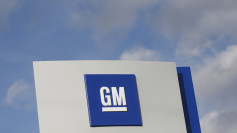Tesla has issued a recall for 3,878 of its Cybertrucks due to a fault in the accelerator pedal that could potentially cause the vehicle to accelerate unintentionally. The recall, announced by the U.S. National Highway Traffic Safety Administration (NHTSA), highlights a defect where the accelerator pedal pad could come loose and become lodged in the vehicle's interior trim, posing a significant risk of crashes.
The defect was brought to light through social media and online discussion forums where users reported the issue. Following these reports, the NHTSA reached out to Tesla to request more information concerning the fault. According to the NHTSA's findings, the issue stems from an "unapproved change" in the manufacturing process, where soap used as a lubricant during assembly compromised the pedal pad's adhesion to the accelerator.
Tesla, which started deliveries of its much-anticipated Cybertruck in late November after delays caused by production and battery supply issues, has seen its stock price fall nearly 3% following the recall announcement. This adds to a five-session losing streak where the company's shares dropped by approximately 14%.
The recall affects all Model Year 2024 Cybertrucks manufactured between November 13, 2023, and April 4, 2024. Given the specific timeframe, it suggests that nearly all Cybertrucks currently on U.S. roads are subject to the recall. Unlike many previous Tesla recalls, which were resolved with over-the-air software updates, this issue requires a physical repair. Tesla plans to replace or repair the accelerator pedal assembly at no charge to the vehicle owners, who will be notified through letters scheduled to be mailed out in June.
This mechanical issue is one of several challenges Tesla has faced recently. Earlier this year, the electric vehicle maker recalled about 2.2 million vehicles in the United States due to an unrelated issue with the font size on warning lights. Additionally, U.S. safety regulators have escalated their probe into the company's vehicles over concerns related to power steering loss, upgrading it to the status of an engineering analysis.
Tesla's troubles come amid broader organizational changes, with the company announcing earlier this month that it would lay off approximately 10% of its global workforce. This workforce reduction is part of a series of cost-cutting measures as the company navigates a challenging economic landscape and seeks to boost profitability amid increasing competition in the electric vehicle market.
The recall is another reminder of the complexities and challenges of innovating in the automotive industry, especially as companies like Tesla push the boundaries of technology and design. For Tesla, addressing these manufacturing and quality assurance issues will be crucial as it aims to maintain its leadership in the increasingly crowded and competitive electric vehicle market.





